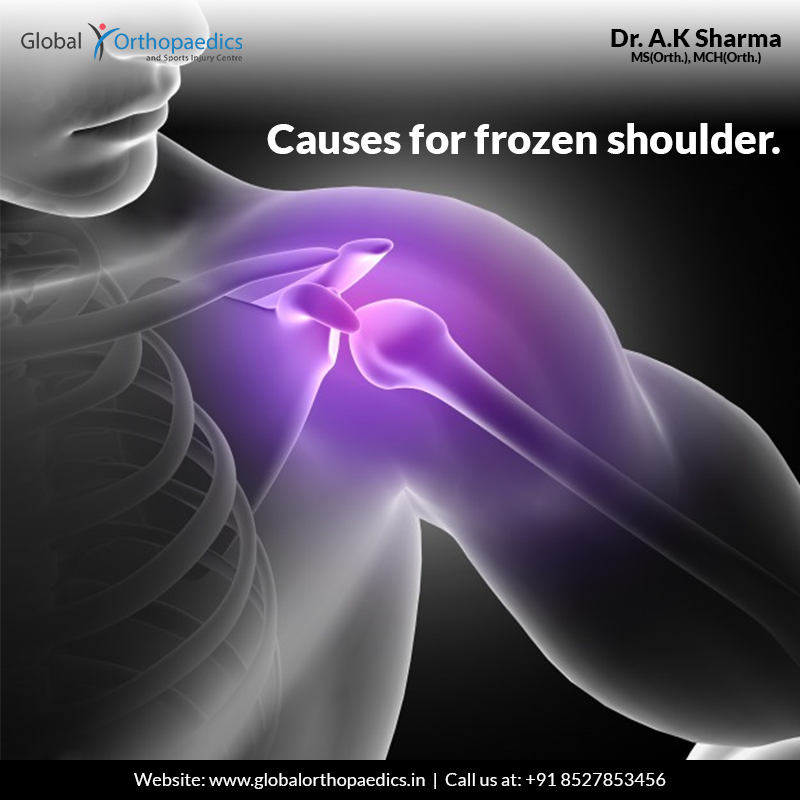In this condition, pain and stiffness start making your shoulder harder to move around.
It can even get worse if your shoulder feels “frozen” in a single position.
Although it may take a few years to get completely better, it can improve faster if you do physical therapy to help with recovery.
Causes
Actually, it’s not easy to know exactly what causes it, though some things make you more likely to have it.
Frozen shoulder is believed to happen when scar tissue forms in the shoulder. This affects the shoulder joint’s capsule to thicken and tighten, leaving less room for movement. Movement may become stiff and painful.
These are some majorly occurring scenarios which highly result in causing a frozen shoulder.
- Most people with frozen shoulder have experienced immobility as a result of a recent injury or fracture, therefore they not able to move their shoulder very well.
- If you have diabetes, which can worsen symptoms and make them last longer.
- Thyroid problems, Parkinson’s disease, heart disease, and certain HIV medications also seem to raise your odds of getting frozen shoulder.
- Other factors that can also increase the risk for “Frozen Shoulder” are:
- Age: Being over 40 years of age.
- Gender:70 percent of people with frozen shoulder are women.
- Stroke: Diseases that affect the arteries leading to and within the brain.
- Cardiovascular disease: CVD is a class of diseases that involve the heart or blood vessels.



